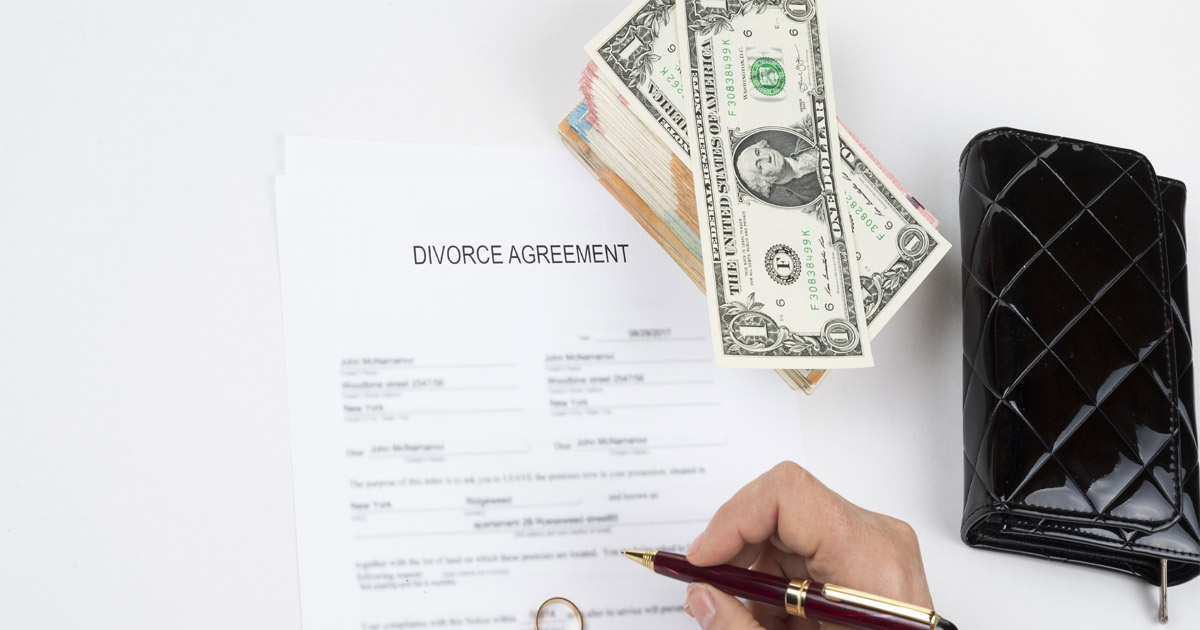How Can I Protect My 401(k) in Divorce?

When you are putting money into your 401(k) retirement savings plan, you are planning for your future, and you do not want anything to disrupt that future. While you may see that plan as a future nest egg for you and your spouse, things may not always work out with them, and you want to be sure that you protect that future that you have worked so hard to save for.
There are numerous ways you can protect your 401(k) plan when you are going through a divorce. While you may not be able to protect all of it, you might be able to keep most of it from being classified as a marital asset.
Trying to handle this situation on your own could be a daunting task as you push to protect your retirement savings along with other assets you own from your ex-spouse. Marlton divorce lawyers will work with you to help you protect what is yours from becoming something you could easily lose in a bitter divorce settlement.
Is A 401(k) Considered Marital Property?
Your 401(k) plan will be considered a marital asset along with any other retirement assets including IRAs or other retirement benefits. However, only the amount divided during the time of your marriage will be considered a marital asset and therefore subject to dispersal during a divorce settlement.
During a divorce proceeding, the court will classify all assets and money accumulated or purchased during the life of the marriage as marital property. Then, if the two ex-spouses cannot reach an agreement on their own, a judge will distribute the assets equitably. Despite what the name implies, this distribution will not be an easy 50/50 split, but instead a division of the assets so that both sides get a similar amount. This includes the money you are saving for your retirement.
Dividing retirement assets tends to be one of the trickier aspects of a divorce given the diverse way many save money in their retirement. Most retirement plans invest in a portfolio of stocks. It is not just a certain amount of money sitting in a bank account.
Dispersing the money may not be a simple matter either as it may not necessarily be an equitable amount of what was contributed during the life of your marriage. Instead, there other factors that will impact that amount including whether your ex-spouse has a retirement account themselves and the amount they contributed to that one.
What Are Ways to Protect My 401(k) Plan During a Divorce?
There are a few ways that you can protect your retirement assets from being dispersed during your divorce proceedings. One way is before you even get married by having a prenuptial agreement with your spouse that protects your 401(k) plan. That is the most effective way to protect it.
Other ways include negotiating with your ex-spouse during the divorce proceedings. You might wish to offer them something else in lieu of your retirement savings. Finally, you might want to look into your own savings and lifestyle decisions to determine how you can replenish whatever money that was in that account that you might lose after the divorce.
One thing that you should not do is hide your 401(k) plan assets. This can be considered lying under oath as you are required to be open and honest with the court about all your assets. Lying about what you have will not protect your assets, and will only put you in more trouble.
Similarly, attempting to cash out your 401(k) plan just prior to a divorce is also a bad idea. Just because you pull the money out does not mean that your spouse will still not ask for it. If that money is not there, then you will have to explain to a judge why you withdrew all of it in the manner that you did. It is best to consult with a Marlton divorce lawyer ahead of time about proper ways to protect your retirement assets.
How Will the Court Divide My Retirement Assets?
The court legally does not have the authority to disperse the assets from your 401(k) plan although they can mandate the amount that is distributed. The only way to divide the assets is by use of a Qualified Domestic Relations Order (QDRO). This document instructs the plan administer to divide the assets.
Typically, the ex-spouses will negotiate an agreement, along with their lawyers, about the amount they wish to divide. Once they reach an agreement, they must present the agreement to the judge. If the judge finds it fair and equitable, they will approve it and both spouses and their lawyers will sign the document.
Many will hire a specific QDRO company to handle this responsibility and split the fees needed among the two ex-spouses. Those unsure of the costs should speak with the judge on the cost and how to pay for it.
This is a common document and a typical way that most spouses will divide these assets up. Most couples will simply ask that the assets roll into a new 401(k) plan while there are those who might need access to money so they can get their new life started.
They could need cash right away to put money down on a new house for instance. In those instances, they can include a provision in the QDRO for a divorce cash out. Including it in the QDRO document avoids that 10 percent penalty imposed for withdrawals before you are 59 and a half. However, any money you take out will still be subject to tax implications.
In addition, if you find that you need cash to help pay for certain aspects of your divorce, you are eligible to request a hardship divorce withdrawal from your 401(k) plan. By requesting this type of withdrawal, you can once again avoid the 10 percent fee, although not the tax implications.
Marlton Divorce Lawyers at Goldstein & Mignogna, P.A. Help You Protect What is Yours During a Divorce
If you are worried about losing your retirement nest egg in your divorce, you have several options to ensure that your divorce does not cost you your future. Our Marlton divorce lawyers at Goldstein & Mignogna, P.A. will help you protect those assets and fight to keep them as safe as possible. Call 856-890-9400 or contact us online today to schedule an appointment. Located in Marlton, New Jersey, we serve clients throughout South Jersey including Marlton, Burlington County, Camden County, and Gloucester County, New Jersey.


